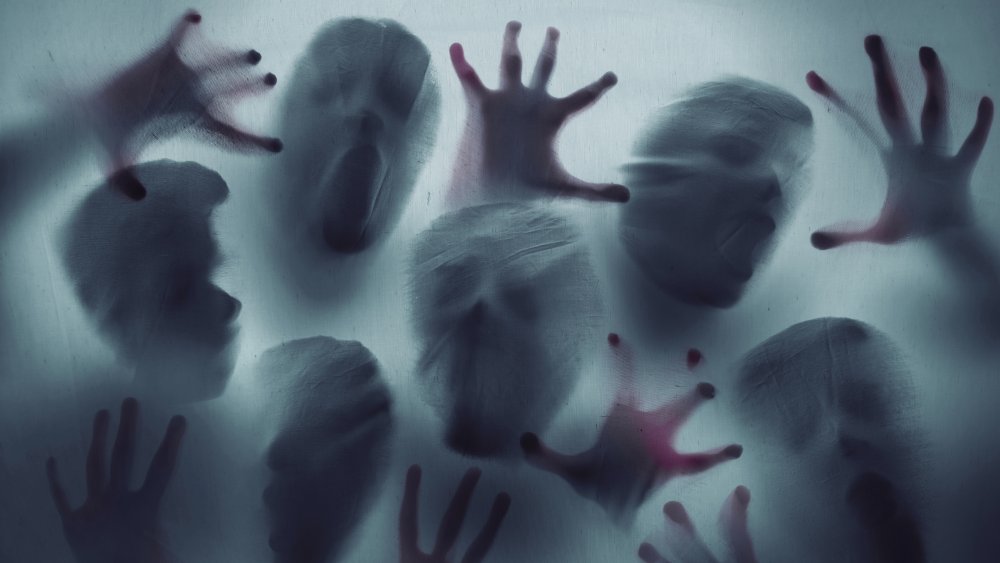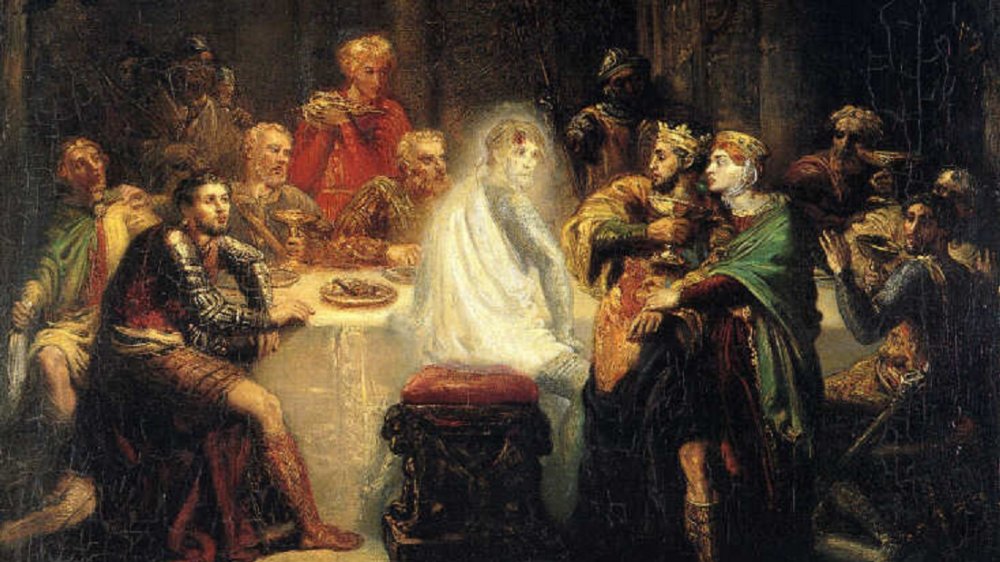What Science Has To Say About Ghosts
We may receive a commission on purchases made from links.
Belief in ghosts predates anything approaching modern religion, and is a universal, worldwide phenomenon. Belief in ghosts necessitates a belief in the soul and an afterlife of some kind, and is clearly connected to a fear of death. The term "ghost," though, changes from culture to culture. In places like Japan or Thailand, ghosts are subdivided into types such as "the vengeful woman," (kuchisake-onna or krasue, for example) connected with miniature, repetitive narratives about betrayal in life, suffering, an unfulfilled death, and desiring something from the living.
Whether or not these ghosts are specific people isn't relevant — they're more "spirits." A Western notion of a ghost — a specific, individual essence that somehow retains individual sentience and memory after death, and isn't a Judeo-Christian demon, ancestral force, extra-dimensional entity, poltergeist, god, or something — is just one way to interpret the word "ghost." Belief in this type of creature must necessitate belief in kind of energy that persists after death (and can't be destroyed, per the First Law of Thermodynamics).
With all this ambiguity, literal tens of thousands of years of pre-scientific belief under our species' belt, a glut of YouTube watch-for-the-moving-object videos, and so much still unknown about what happens after death (if anything), it of course makes sense that many, many people currently believe in actual, true, post-life selves. In fact, according to a 2013 Harris Poll described by Live Science, a full 43% of Americans believe in ghosts.
Some truly spooky stuff, Scooby Doo
Folklore and fears aside, though, is there any hard data that demonstrates the potential for the existence of ghosts? As it turns out, the same ambiguities regarding what constitutes a ghostly experience make it difficult to get any specific measurements, or to classify experiences.
In their 2016 book "Ghostly Encounters: The Hauntings of Everyday Life," Dennis and Michele Waskul interviewed people who reported experiencing paranormal phenomena. Many of them, rather than reporting seeing a traditional image of a ghost (a glowing or faded humanoid, floating around) simply reported strange or uncanny things happening; they were unable to attribute anything concrete, in terms of cause and effect, to a discrete entity of any kind. All humans, of course, are subject to varying degrees of apophenia, or the tendency to craft patterns that don't exist.
Some paranormal hunters, in true Ghostbusters fashion, used devices such as "Geiger counters, Electromagnetic Field (EMF) detectors, ion detectors, infrared cameras and sensitive microphones" to try and accumulate quantifiable evidence. If ghosts, though, exist in this realm enough to interact with it (push over a cup, walk down the stairs), and also exist across planes of being, then why would we even assume we have the tools necessary to fully behold their existence? Unless our universe contains any and all forms of energy and consciousness that we ourselves are able to capture and view through a 3-dimensional pinhole, there is simply no way to scientifically confirm the existence of ghosts.

